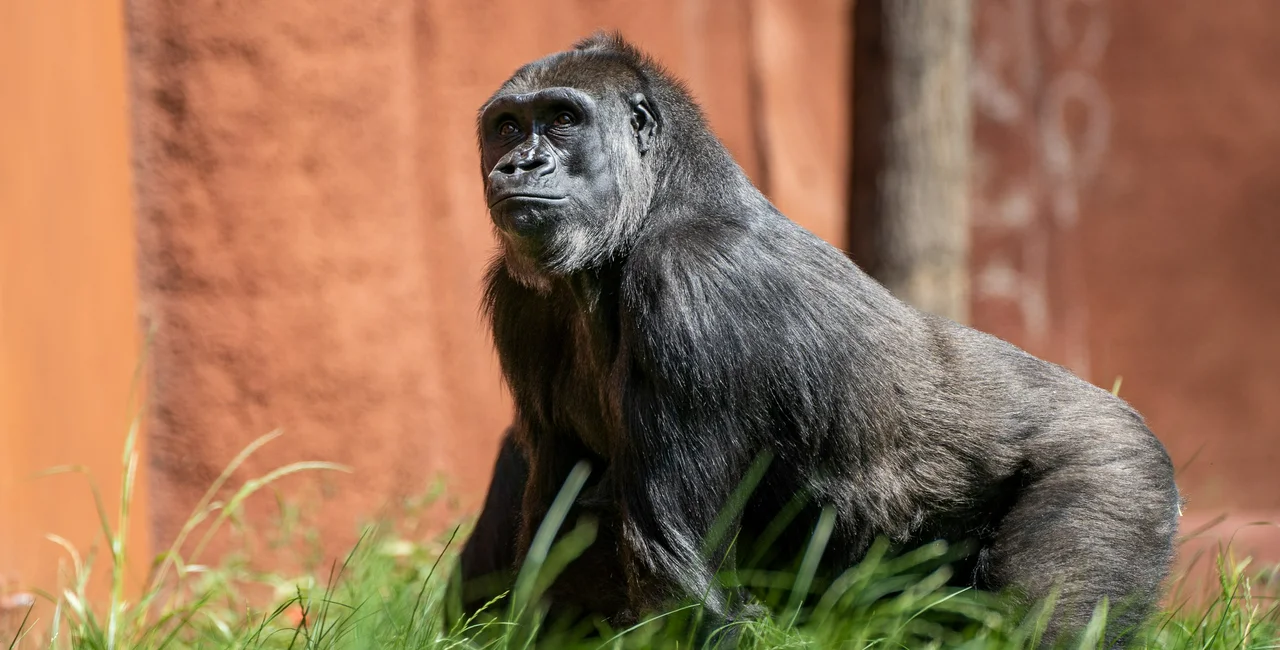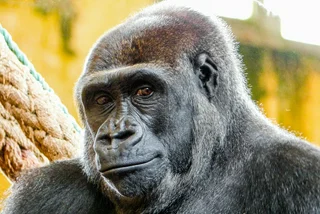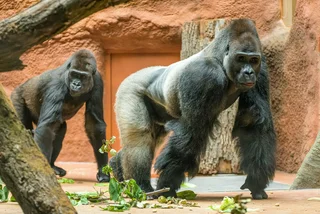September 24 is World Gorilla Day, and Prague Zoo has a lot to celebrate. In addition to housing gorillas for 60 years, along with nearly 20 years of successful breeding efforts, two new gorilla infants are expected to join the zoo early next year.
According to Prague Zoo director Miroslav Bobek, the popularity of gorillas housed in zoos worldwide allows for their support in nature. He calls the gorillas bred and raised in captivity "ambassadors" for those that live in the wild.
In an interview with Czech News Agency, Bobek shared the history of gorillas at Prague zoo, and some exciting developments for the gorilla community, given that two of the zoo's gorillas are currently pregnant.
The expecting gorillas have a special connection, as they as the mother and daughter of the very first gorilla born at Prague Zoo, Moji, who currently lives in Spain. Moji's mother Kijivu and her daughter Duni, current residents of Prague Zoo, are both expected to deliver early next year.
"Over the past 60 years, there has been a tremendous shift. Back then, gorillas were almost exclusively imported from Africa," said Bobek, recalling the first gorilla inhabitants of Prague Zoo, a male named Titan and a female named Nigra.
"Now the situation is completely different. The gorillas we have in the zoo, with the exception of the oldest gorilla Kamba, are from breeding in zoos."
Bobek highlighted how the popularity of captive gorillas allows the zoo to contribute not only to gorilla conservation but also to the well-being of other animals. Prague Zoo operates a project called the Wandering Bus in Cameroon, with the aim of educating local children.
Prague Zoo's new gorilla pavilion, the Dja Reserve, is situated in the upper part of the zoo and houses a family group of gorillas, including females Shinda, Kijivu, Kamba, Duni, and males Ajabu and Kisimu, who joined the group from Austria last year.
In the zoo's original gorilla pavilion, the Méfou Centre in in the lower part of the zoo, male gorilla Richard resides with his two sons, Kiburi and Nur. The gorillas are separated into these groups as part of breeding efforts; Bobek emphasizes that programs must be well-regulated to ensure long-term sustainability and genetic diversity.
"Gorillas cannot be bred indiscriminately. The European Association of Zoos and Aquaria, along with us, places great emphasis on ensuring that gorillas born in human care are placed in the best possible conditions. However, zoo capacities are limited."
Gorillas typically live in groups, led by one dominant male with several females. Bobek mentions the necessity of carefully managing this aspect of their social structure to prevent conflicts and ensure their well-being.
Next year, the zoo anticipates the birth of two new gorilla infants, from expectant gorillas Kijivu and her granddaughter Duni. Kijivu will become a great-grandmother, and Duni an aunt. Both infants will share the same father, Kisimu.
With a history spanning six decades, Prague Zoo's dedication to gorillas is a testament to their commitment to wildlife conservation. These gentle giants continue to inspire visitors and contribute to the protection of their wild counterparts in Africa.












 Reading time: 2 minutes
Reading time: 2 minutes 



























